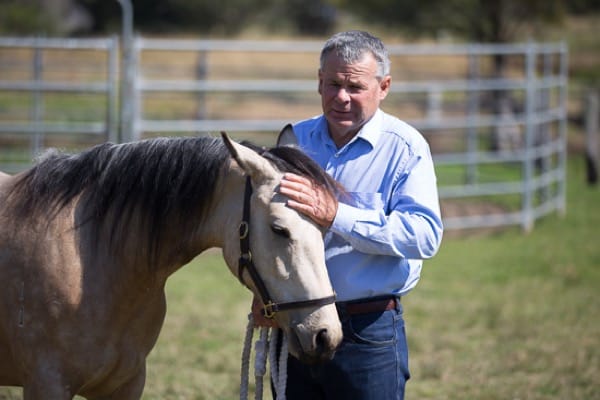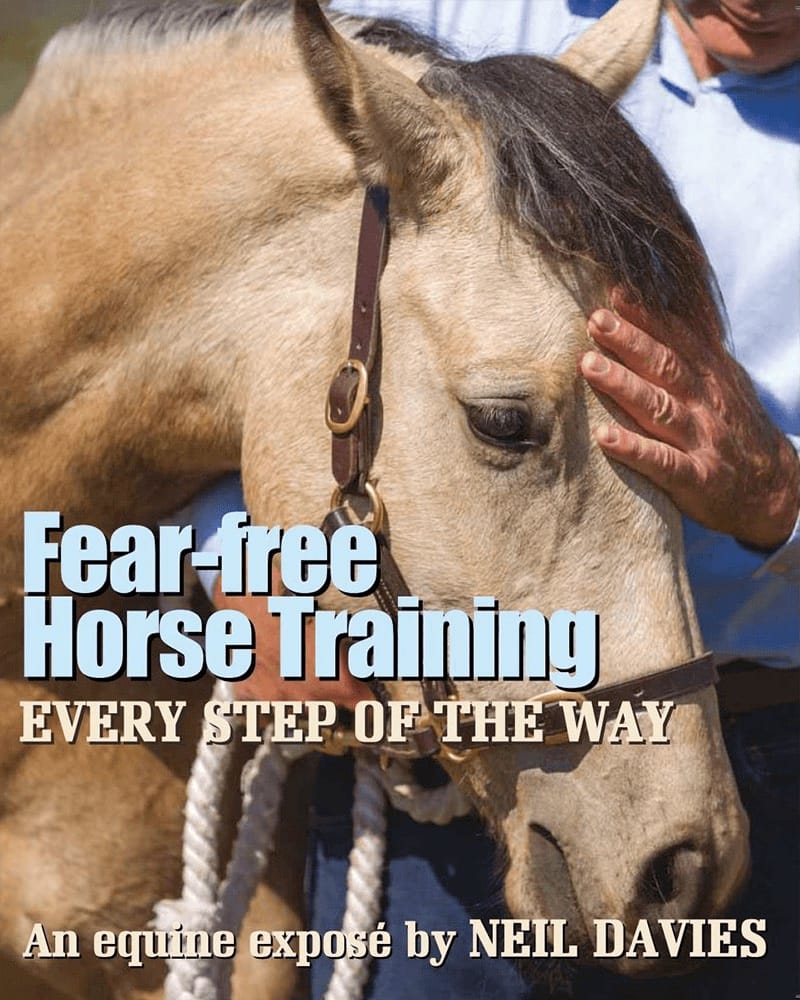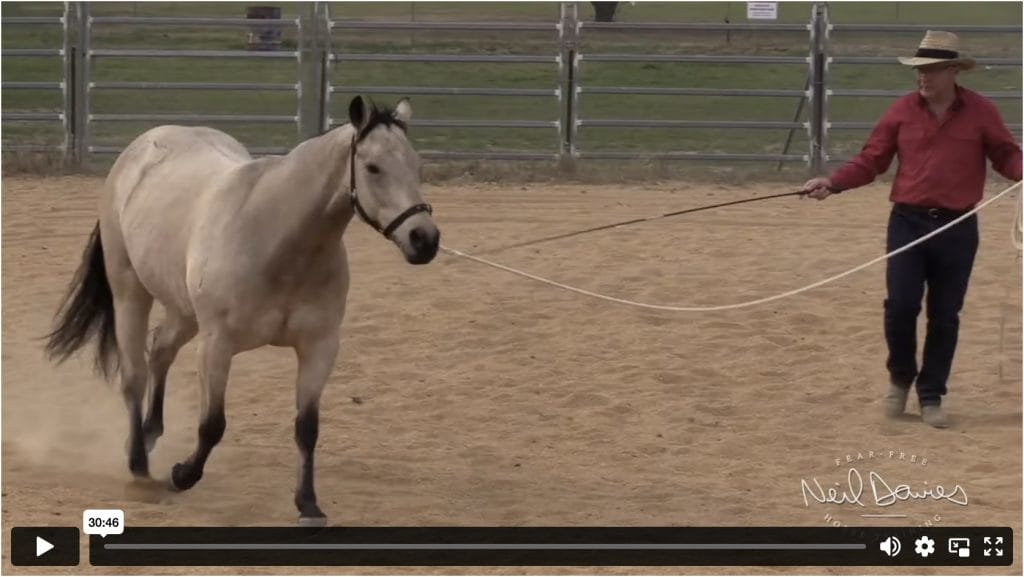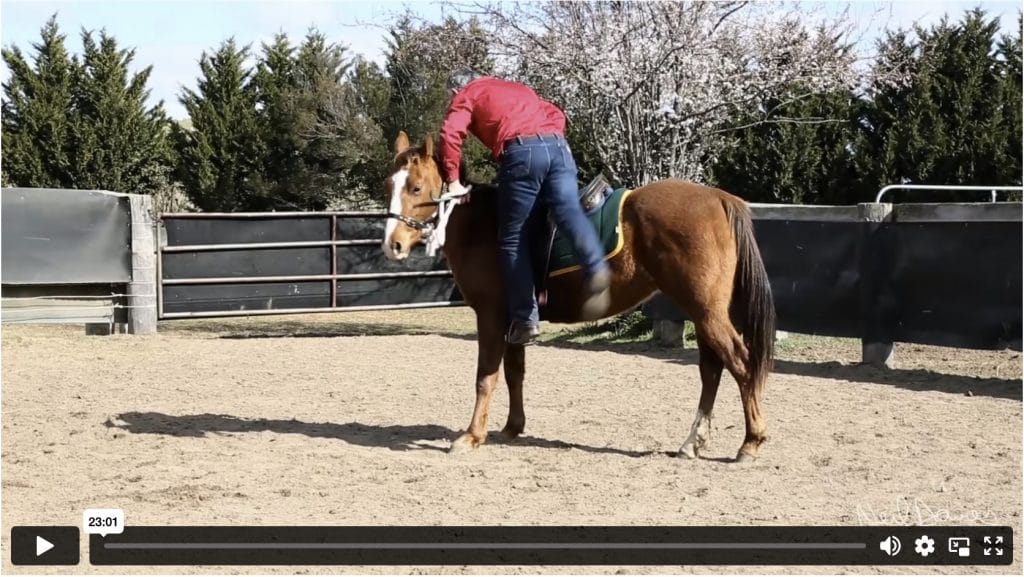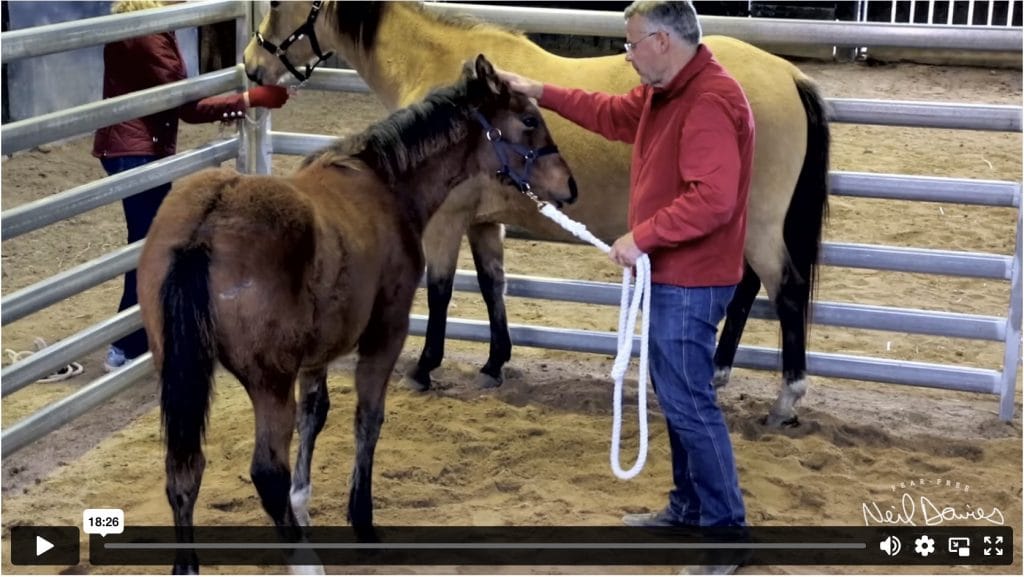Your horse learns from every interaction he has with you.
Every time you go near your horse, he learns something new.
- He may learn to lay his ears back and push over you or bite you.
- He may learn to turn his tail and kick at you.
Horses aren’t born with an urge to bite or kick or push over their handler.
Horses learn these unwanted behaviours through inconsistent handling.
They don’t suddenly start biting or kicking or pushing over you for no reason.
There are a hundred little steps that lead to a horse learning these unwanted behaviours.
To avoid teaching your horse undesirable behaviours, you must have strict rules and discipline every time you’re with your horse.
You must always be definite about what you want your horse to do.
And most important of all, you must discipline yourself to concentrate on your horse at all times.
This may be as simple as making sure that your horse stands while you groom him and saddle him:
- If your horse moves even one step, that’s one step too many.
- If he lays his ears back when you groom him, you must react immediately.
- If you don’t correct your horse immediately as he lays his ears back, next thing he’ll turn and nip at you.
And so, whether you mean to or not, you’ll teach your horse to bite.
If your horse takes one step faster than you ask when you lead him, you must correct him immediately.
If you don’t, one step will become two, two steps will become three, three will become four and next thing your horse will push over you or drag you along wherever he wants to go.
When you have a problem, simply go back to basics and teach your horse that it’s unpleasant to bite you or push over you.
Teach your horse that it’s easy and pleasant to behave as you wish.
Conversely, you must also teach your horse that biting results in an unpleasant experience for him.
It’s too late to react even a few seconds after your horse bites.
Remember, you must react every time he bites, and never talk or yell at him.
Many trainers say that giving a horse treats will teach him to bite and push over you.
I disagree.
Treats don’t cause unwanted behaviour.
It’s the lack of consistent rules and the lack of discipline that causes unwanted behaviour.
Giving a horse treats doesn’t mean that he can do as he pleases – your rules must still apply.
Always remember that you don’t need to be heavy-handed.
I’ve seen a trainer hitting a horse over the head every time the horse tried to eat from his feed bin.
This is cruel and it’s certainly not the way to stop a horse pushing over you.
Never harass any horse while he’s eating.
Feed time isn’t the time to try and teach your horse anything.
Always let your horse eat his feed in peace.

